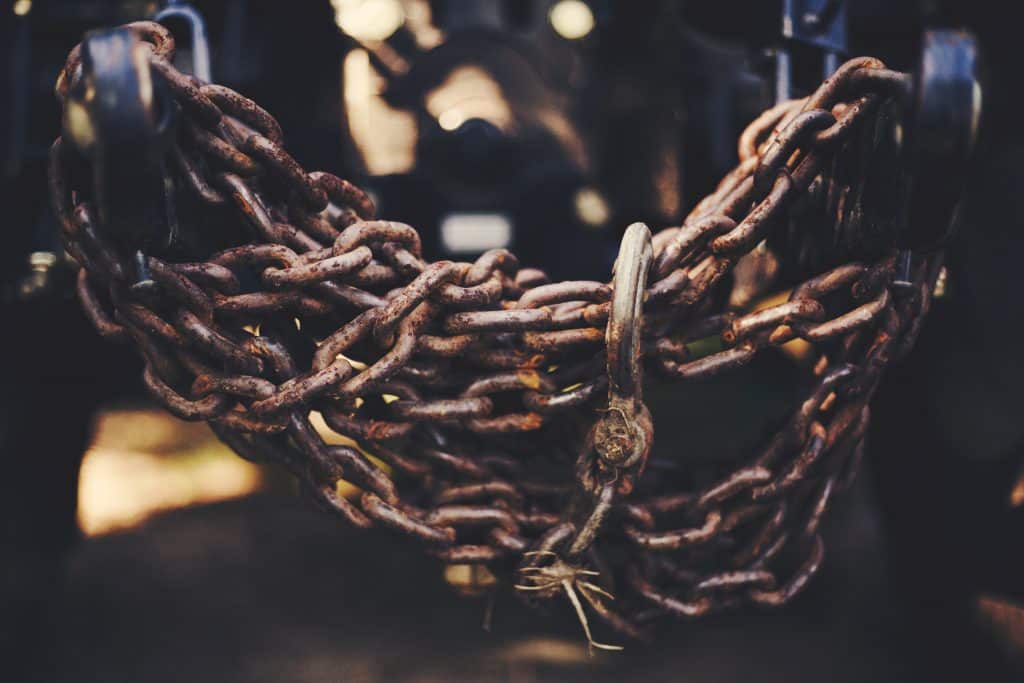Even with Local SEO, links are still very important for Google ranking, but the quality of links is far more important than ever before. At one point, webmasters could simply post their URL on dozens of directories and websites to gain ranking, no matter how poor the site. That won’t fly today, which is why so many people are now struggling to get those spammy links removed.
Every link to your site is a vote for the quality of your business. Unfortunately, if a vote comes from a site that is nothing more than a collection of links to other sites and a lot of keywords, it won’t hold much clout. Pages that Google holds in high esteem, however, can be very useful when linking to your site.
It is very important that your link building efforts are worth it. Take the time to build those links, but ensure that only Google-approved, high-quality websites are on your list.
FIRST THINGS FIRST: CREATING A STRATEGY
Before you rush off to find websites that will feature your company and link to your page, you will need to develop a strategy. This will save time in the long run, as you will avoid submitting multiple times to the same website.
STEP 1: REVIEW YOUR CURRENT LINK PROFILE
Check how many backlinks you currently have. There are a number of free tools that can give you a list of sites that are linking to you. These include:
- Ahrefs: A site explorer and backlink checker.
- Open Site Explorer: Designed by Moz, this tool is particularly useful.
- Majestic: Another easy-to-use backlink checker.
Evaluate the quality of the links that are already built. If you have too many low quality links to your site, you’ll need to work on some higher quality ones. When there are already plenty.
STEP 2: PLAN HOW TO GET LINKS
Now that you know that you need more high quality backlinks, you’ll need to work on building some. Instead of going about this haphazardly, you should have a plan in place.
Decide how you will get those additional links. Will you use content? Actively ask for links? A combination of several methods?
STEP 3: SCHEDULE YOUR LINK BUILDING
It’s easy to ignore this valuable task if you are busy with other activities in your business. Make sure to schedule some time each day to work on gaining links back to your site.
STEP 4: EXECUTE A PLAN
The final step is to start working. Building up a collection of quality links is time consuming and tedious, but it is worth it in the end. The more high end sites “recommending” your website, the more authority you’ll gain from Google. This is one of the factors that could make all the difference in whether or not you beat your competition in the search results.
STEP 5: TRACK THE RESULTS
Since building links can take some time, make sure you track everything. Set up a spreadsheet to enter each site that you have tried to get a link on. You should also include the date.
Check back over your records from time to time and make sure that the sites you’ve worked with have actually given you backlinks. You can also track your search rankings for your main keywords, to see if your site is moving up. Don’t be alarmed if it bounces a bit, as that’s completely normal. With ongoing link building, you should see an overall rise in ranking.
WHERE TO FIND QUALITY SITES
As a local business, the first sites you should look for should be local. It’s best to find websites that have some authority or offer local resources. These include:
- Charities and nonprofit organizations
- Libraries
- City websites
- Newspapers
- Local blogs
- Clubs and groups
- Universities or schools
- Radio websites
Any of these websites will have plenty of authority in the area. The trick is to find a way to get a link from them. Your business may not be appropriate for all of the sites, but you can usually find a few.
To land a link, find out if the website has a page for those who contribute to the organization or club. If the site has a blog, you may be able to send in a guest post. When all else fails, talk to the owners to see if you can work something out. These links are valuable and it is worth finding a way to make the link work.
TECHNIQUES TO BUILD BACKLINKS THAT WORK
Over the years, many link building techniques have come and gone. Certain methods still work very well and have survived the test of time.
Writing great content. Content is the most popular method of building links for business websites. We’ve discussed this earlier in this book, but it is worth mentioning again. Make sure your content, both on your own site and on other websites is worth reading.
Don’t forget to share your own content on social media sites. If you have produced something well worth sharing, other people will also share it.
Leverage your relationships. Make a list of business owners and influential people that you know in the area. Can you ask them to help with links? Local businesses have the advantage of knowing those in their city or town and this can make it much simpler to get those local backlinks.
Guest posting on other blogs. Guest posts have long been used to gain backlinks. Unfortunately, this technique has a bad reputation, thanks to badly written posts that were full of keywords and links. The method is still valid, but it only works when you are posting with a focus on providing value to the reader.

Guest posts should be:
- Well-written and grammatically correct
- Useful to the reader
- Unique
- Engaging
Ideally, you should only include one or two links in the post. Avoid adding two or more links to your own site and instead, link one to a quality resource that enhances the topic of the article.
Become a local resource. Let the local newspapers and magazines know that you are willing to do interviews or serve as a resource in your industry. The next time a story requires your expertise, you will be contacted. This can be a very good way to establish authority and gain links or citations.
Check what your competitors are doing. Wondering how your competitors made it to the front page? You can use a backlink search tool to find all the sites that link to your competition. Figure out what they did by looking at the types of links. You will be able to tell fairly quickly if the links have much value from the website they originate from.
Once you know what the other people are doing, you can go ahead and copy their methods. In most cases, a few high quality links can make all the difference in where you are ranked.
Set up a giveaway. Everyone loves winning a prize and if you can gain some publicity and improve your SEO at the same time, a giveaway is worth it. Choose something of value that you can offer. A gift card or a physical prize is more likely to appeal to your audience.
Once you’ve chosen a prize, make sure you promote the giveaway on your site and on social media. If you provide extra chances to win when people blog or tweet about the giveaway, you will see an increase in the number of entries, as well as backlinks.
Offer your site as a resource. Take a look at some local sites that are in your niche and find the broken links. It’s not uncommon to have sites disappear and the link loses its value. If you write the webmaster to let them know that their link is no longer valid, then offer your own site as a useful resource (it must be related, of course), you will often find that the site owner is grateful and more than happy to link to you.
Use your own resources. Do you run other blogs or websites? If they are related, you can use those sites to link back to your main account. Try to link to specific pages, instead of the homepage.
Internal links can also be helpful, though they don’t pack as much of a punch as external links. Make sure that the various pages on your site are linked to other internal pages to increase the value of your content.
Use a tool to build your directory profile. Tools like Moz Local will help push your NAPU out to countless websites in a non-spammy way. Make sure you’re only using this when you have a real brick and mortar location as to avoid any strange penalties.
FACTORS IN LINK RANKING
Keywords used to be a very important part of building links, but things have changed. While your anchor text still counts toward search engine ranking, there are even more factors to consider.
ANCHOR TEXT
If keywords aren’t such a big deal anymore, what should your anchor text be? While your keywords or page title do still make for good anchor text, it’s also important that the text be different from other links. Using the exact same anchor text every time, particularly where it is a keyword phrase, rather than the business name, can end up causing more problems.
LINK POSITION
Where the link is in the HTML of a page will also have an impact on the value of the link. The further up the page the link is, the higher the value. In fact, tests have shown that this might even be the most important factor when building links.
OTHER LINKS
Sites that link to high quality sites are more likely to help you improve your authority. If the site that links to you also links to a payday loan site, it could actually devalue your link. While you can’t always control who links to your site, be aware that this type of website will not offer much value.
LINK BUILDING MISTAKES TO AVOID
Google is quite strict about unwarranted links and if you are doing anything untoward to get those extra links, it could go badly for you. To stay on Google’s good side, you’ll want to avoid these common issues.
Collecting links from unrelated sites. If your business is in the auto industry, you aren’t doing yourself favors by getting a link from a bakery site. While local links are certainly useful, they should make sense. You may end up with a lower ranking if it looks like you’ve been paying anyone and everyone to give you a link.
Buying links. While this is still common practice in some circles, it can be detrimental to your search engine ranking. Natural links are a much better way to go. The idea behind links is that other people find your site useful and recommend it. Paying for a link undermines the whole point and search engines can often spot a fake link.
Building too many links in too little time. When you go from two or three links to hundreds in a couple of days, it looks suspicious. A post or video that goes viral can gain a large number of links in a short amount of time, but those usually look a little different and Google can often tell the difference. This should be done slowly and steadily, with a gradual increase in the number of sites pointing to yours.
Getting reciprocal links. Have you ever offered to link to someone else’s site in exchange for a link back? The two links essentially cancel each other out and it’s not really worth anything.
Not following up on contacts. Bloggers and business owners tend to be very busy and it’s easy to miss an email. You may be throwing away an excellent opportunity if you don’t follow up.
Expecting links to make all the difference. Building links is just part of a local SEO strategy. While links can help your business move up in the search results, don’t expect to only build links, and see great results. You’ll need a combination of methods to really move up the ranks.
Overusing keywords in your anchor text. Not all sites will give you the chance to pick your anchor text, but if you do get to add your own, be careful. Using the same keyword phrase over and over again can actually end up reducing the value of those links. Try to use your company name for the majority of the links, with the occasional keyword phrase.
Building links only to the homepage. When you have a thousand links and they all point to your homepage, it looks pretty suspicious. You will want to link to various pages throughout the site. Many blogs, for example, will link to a specific product page instead of just directing readers to the main page.
Not tracking backlinks. It’s important to know how your business is doing in SEO. You probably check your ranking fairly often, so why wouldn’t you stay on top of your backlinks? This can help you find new sites to get links from and will help you see exactly what affects your rankings.
Links can be an excellent way to boost your ranking in the search results, but only if they are done correctly. Try for natural links that Google will take at face value, from high-quality sites that will help move you up in the search engine results.













